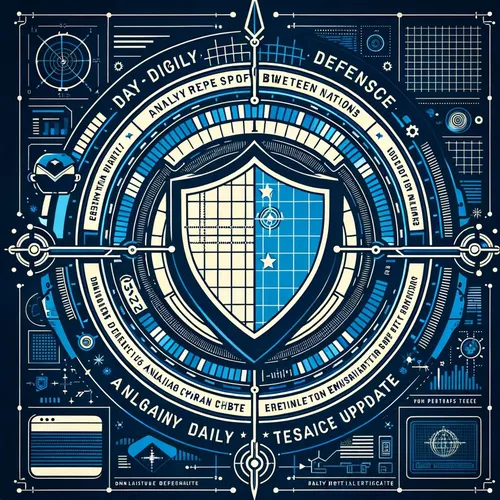Cybergeddon Looms: Zero-Days, Sneaky Spies, and a Texas-Sized Surprise
- Author
- Quiet. Please
- Published
- Wed 03 Sep 2025
- Episode Link
- https://www.spreaker.com/episode/cybergeddon-looms-zero-days-sneaky-spies-and-a-texas-sized-surprise--67622321
This is your China Hack Report: Daily US Tech Defense podcast.
It’s Ting here, your guide through the dazzling data minefield of the China Hack Report: Daily US Tech Defense. Let’s skip intros because today—September 3rd, 2025—brings enough zero-days and hot patches to make even my firewall sweat.
To start, CISA just dropped four new advisories for industrial hardware vulnerabilities, and the timing is suspiciously close to the final quarter of China’s 14th Five-Year Plan. Delta Electronics’ EIP Builder has a vulnerability, CVE-2025-57704, where a bad XML can trick the system into spitting out sensitive files. Delta says: update to version 1.12 or you’re a sitting duck, especially if you’re running smart factories in energy or manufacturing. SunPower’s PVS6 got exposed for having a Bluetooth flaw, CVE-2025-9696, problem is, attackers in range could commandeer it, kill your solar output, tweak your grid settings, or create an SSH tunnel. And if you guessed SunPower didn’t even respond to CISA—you win a gold-plated USB stick. Lastly, Hitachi Energy’s substation relay update means the power grid operators need to brush up on their patches or risk some serious lights-out scenarios.
Meanwhile, Google’s September Android update fixed two zero-days—CVE-2025-38352 and CVE-2025-48543—that allowed privilege escalation without a click. The implication? Espionage operators, possibly from groups like Volt Typhoon or Salt Typhoon, love these bugs for their stealth. Pair this with the WhatsApp CVE-2025-55177 exploit, a zero-click hack recently used in advanced spyware campaigns—according to Amnesty and Facebook’s security lab, this one was patched but anyone getting a WhatsApp notification about this needs to update immediately and comb devices for weird behavior.
CISA, of course, is taking no prisoners. Their “Known Exploited Vulnerabilities” catalog now includes those WhatsApp and TP-Link flaws. Agencies must patch by September 23 or face non-compliance and maybe, courtesy of Chinese state actors, a network that hums the PRC national anthem. Even end-of-life gear like the TL-WA855RE Wi-Fi extender, which is still used in millions of home offices, should be pulled out and replaced—for your sake and everyone in the coffee shop with you.
On the grand strategy level, as China’s 14th Five-Year Plan closes, the US is bracing for a spike in zero-day exploits and new AI-boosted phishing tricks. Watch for stealth positioning in utilities and telecom, and state or municipal election influence ops via cyber enabled leaks or deepfakes. The Department of Homeland Security and CISA keep hammering this point: don’t just install patches—harden edge devices, audit logs, lock down RDP and VPNs, and assume Beijing is two steps away from flipping the switch if tensions escalate.
Across the country, even Texas is rolling out a dedicated unit to combat Chinese influence and digital disinformation, showing local governments are as much on the cyber front line as DC. Meanwhile, on a worrying note, the Office of the Director of National Intelligence is slicing its cyber intel ops. Cutting key teams like the Foreign Malign Influence Center, right as both China’s hacking and influence activity ramp up, is the digital equivalent of disabling your fire alarm as the building starts to smoke.
So, listeners, keep those patches rolling, comb logs for phantom connections, and never open the suspicious WhatsApp that says you’ve won free dumplings. Thanks for tuning in to the daily, don’t forget to subscribe, and as always: This has been a quiet please production, for more check out quiet please dot ai.
For more http://www.quietplease.ai
Get the best deals https://amzn.to/3ODvOta
